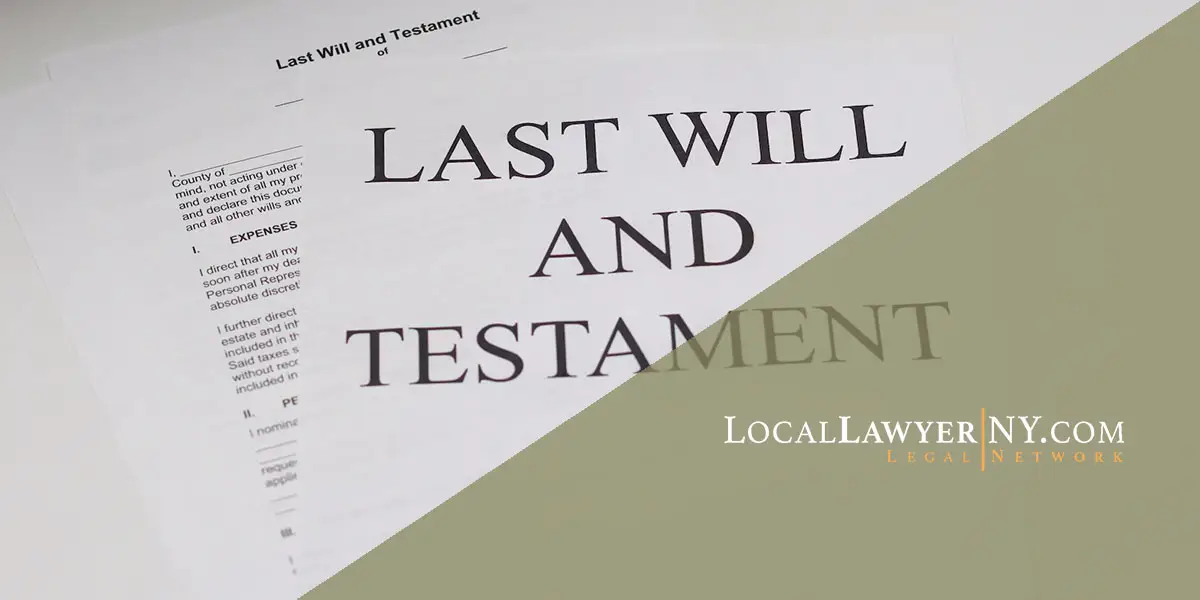Author: AlexFit
When it comes to estate planning, there are several essential documents you may need, depending on your circumstances. Here are the most common ones:
Will:
A will is a legal document that outlines your wishes regarding the distribution of your assets after your death. It allows you to designate beneficiaries who will inherit your property, including real estate, investments, personal belongings, and other assets.
In a will, you can also name guardians for minor children, specify funeral arrangements, and appoint an executor to carry out your instructions. The executor manages your estate, pays any outstanding debts or taxes, and distributes assets according to your wishes.
To create a valid will, you typically need to meet specific requirements, such as being of sound mind, having the document signed by witnesses, and complying with the laws of your jurisdiction.
It’s important to periodically review and update your will to reflect changes in your circumstances or wishes. But, again, consulting with an estate planning attorney can ensure your will is properly drafted and legally binding.
A will allows you to specify how your assets will be distributed after death. It also allows you to name guardians for minor children and an executor to carry out your wishes.
Trust:
A trust is a legal arrangement where you transfer your assets to a trustee, who holds and manages them on behalf of beneficiaries. Trusts offer a range of benefits, including:
Asset Management:
A trust allows you to transfer ownership of your assets to a trustee, who can manage them according to your instructions. This can be especially useful if you have complex assets like businesses or real estate properties.
Probate Avoidance:
Assets held in a trust generally do not go through the probate process, which can be time-consuming and expensive. By bypassing probate, your beneficiaries can receive their inheritance more quickly and with greater privacy.
Control and Flexibility:
With a trust, you can specify how and when your assets should be distributed to beneficiaries. For example, you can create a trust that distributes funds to a child gradually over time or only for specific purposes, such as education or healthcare.
Privacy:
Unlike a will, which becomes a public record when probated, a trust offers greater privacy as its details typically remain confidential.
Incapacity Planning:
A trust can provide instructions for managing your assets if you become incapacitated. The trustee can manage the trust assets according to your predetermined guidelines.
There are different types of trusts, including revocable living trusts, irrevocable trusts, and special needs trusts, each serving different purposes. Creating a trust involves drafting a trust agreement and transferring assets into the trust’s name. It’s advisable to work with an experienced estate planning attorney to establish a trust that aligns with your specific goals and legal requirements.
A trust can be used to manage and distribute your assets during your lifetime and after your death. It offers flexibility and privacy and may help avoid probate.
Power of Attorney:
A power of attorney (POA) is a legal document that grants someone else the authority to act on your behalf in legal, financial, or medical matters. The person you appoint is called an “agent” or “attorney-in-fact.” There are different types of power of attorney:
General Power of Attorney:
This grants broad powers to your agent, allowing them to handle a wide range of financial and legal decisions on your behalf. It is often used when you need someone to manage your affairs temporarily or in specific situations.
Limited or Special Power of Attorney:
This gives your agent authority only for specific tasks or a limited period. For example, you may grant someone a limited power of attorney to handle a real estate transaction while you are out of the country.
Durable Power of Attorney:
A durable power of attorney remains in effect even if you become mentally or physically incapacitated. It ensures that someone can continue managing your affairs when you cannot.
Healthcare Power of Attorney:
Also known as medical power of attorney or healthcare proxy, this grants someone the authority to make medical decisions on your behalf if you cannot. This person should be someone you trust to follow your healthcare wishes.
Creating a power of attorney typically requires drafting and signing the appropriate legal document, which may vary based on your jurisdiction’s laws. Therefore, it is essential to choose a trustworthy and competent agent and clearly outline their authority’s scope in the document.
Consulting with an attorney experienced in estate planning or elder law is advisable when creating a power of attorney to ensure it meets your specific needs and adheres to legal requirements.
A power of attorney authorizes someone to make legal and financial decisions on your behalf if you become incapacitated or unable to handle your affairs.
Advance Healthcare Directive:
An advance healthcare directive, also known as a living will or healthcare directive, is a legal document that allows you to express your healthcare preferences and make decisions about medical treatment if you become unable to communicate or make decisions for yourself. It typically includes the following components:
Healthcare Proxy or Agent:
In an advanced healthcare directive, you can appoint a trusted person as your healthcare proxy or agent. This individual will make medical decisions based on your stated wishes and preferences.
Medical Treatment Preferences:
You can specify your preferences regarding medical treatments, such as life-sustaining measures, resuscitation, artificial nutrition and hydration, pain management, and organ donation. This ensures that your healthcare proxy knows your preferences and can advocate for you accordingly.
End-of-Life Care:
Advance healthcare directives often address end-of-life care decisions, including palliative care, hospice care, and decisions about withholding or withdrawing life-sustaining treatments.
Personal Instructions:
You may include individual instructions or specific guidance regarding your medical care, values, and beliefs that your healthcare proxy and medical professionals should consider.
By creating an advance healthcare directive, you can have peace of mind knowing that your medical wishes will be respected and followed. Therefore, discussing your healthcare preferences with your appointed healthcare proxy and providing them with a copy of the directive is essential. Additionally, inform your healthcare providers about the existence of your advance healthcare directive to ensure its availability and proper implementation.
Consulting with an attorney or using standardized forms provided by your state or country can help you create a legally binding and comprehensive advance healthcare directive that reflects your values and preferences.
This document outlines your medical preferences and designates a healthcare proxy to make medical decisions on your behalf if you cannot do so.
Beneficiary Designations:
Beneficiary designations are instructions you provide to financial institutions and insurance companies regarding who should receive the assets or benefits associated with your accounts or policies upon your death. Here are some critical points about beneficiary designations:
Assets with Beneficiary Designations:
Certain financial accounts and instruments allow you to name beneficiaries. Common examples include life insurance policies, retirement accounts (such as IRAs and 401(k)s), annuities, payable-on-death (POD) bank accounts, and transfer-on-death (TOD) investment accounts.
Direct Transfer of Assets:
When you designate a beneficiary, the assets in these accounts or policies will be transferred directly to the named individuals or entities upon your death, bypassing the probate process. This can speed up the distribution of assets and provide privacy, as beneficiary designations generally do not become public records.
Primary and Contingent Beneficiaries:
You can typically designate primary beneficiaries who will receive the assets first and contingent beneficiaries who will receive the assets if the primary beneficiaries cannot do so.
Designating Multiple Beneficiaries:
It’s possible to select multiple beneficiaries and specify how the assets should be divided by assigning a percentage to each beneficiary or designating specific amounts.
Regular Review and Updates:
It’s essential to review and update your beneficiary designations periodically, especially after significant life events such as marriage, divorce, the birth or adoption of a child, or the death of a beneficiary. Outdated designations may not align with your current wishes or circumstances.
It’s essential to carefully consider your beneficiary designations and ensure they align with your overall estate plan. Be clear and specific when naming beneficiaries to avoid potential conflicts or unintended consequences. Consult a financial advisor or estate planning attorney if you have questions or need assistance.
Review and update beneficiary designations on financial accounts, retirement plans, and life insurance policies to ensure they align with your estate plan.
Remember, the specific documents you need will depend on your unique circumstances, so it’s wise to consult with an estate planning attorney to ensure your plan meets your goals and adheres to the laws of your jurisdiction.




